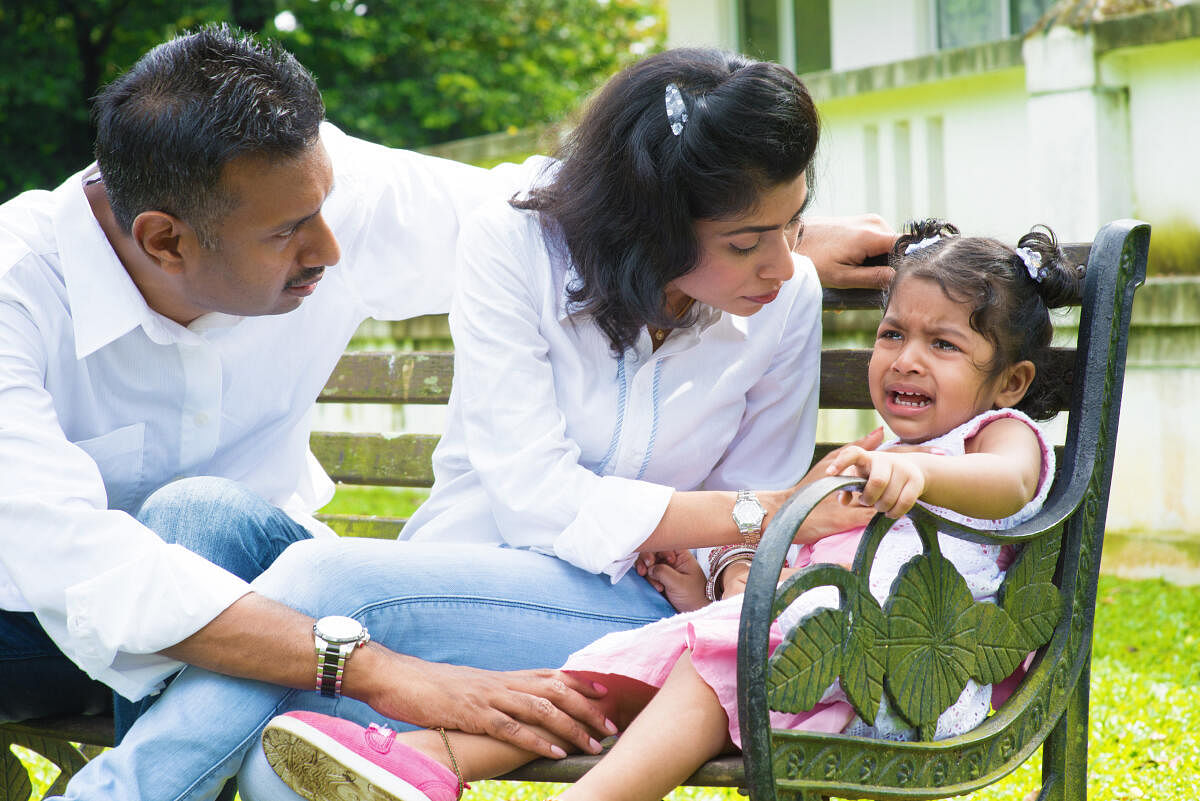
Counsellors urge parents to regulate their emotions after a horrific case of corporal punishment came to light in Bengaluru’s Cottonpet on Saturday.
A businessman tied the legs of his three-year-old daughter and hung her upside down from a four-storey building for around 30 minutes to ‘discipline’ her. The child was asking for chocolates in front of a guest. The father declined her request as she had a cold and congestion. Embarrassed, he took her to the terrace and punished her.
A video of the incident posted by a neighbour spurred the police into action. The accused, hailing from Rajasthan, has been charged under the Juvenile Justice (Care and Protection of Children) Act, and produced before the child welfare committee for counselling.
Emergency plan
Experts say parents have become impatient and irritable today. Some of it is a consequence of the rise of double income, nuclear families, who do not have the needed support to raise children. Some of it stems from their upbringing and temperamental issues.
To clinical psychologist Sharon Ruth, the Cottonpet incident appears to be a case of displaced aggression. She, thus, asks parents to prepare a “fire exit” plan. “Monitor your weaknesses and tolerance level and ask yourself what will you do if you lose control,” she explains.
Even school counsellor Hannah Awayz insists on parents self-regulating their emotions because children don’t have the cognitive or emotional capacity to regulate theirs. Not every tantrum is becoming of an obstinate kid, child psychologist Kapila Sridhar points out. She feels chastising them for a tantrum stems from the societal pressure to raise a well-behaved child. “A tantrum perhaps means the child is deprived of happiness and pampering,” she says. But won’t giving in to tantrums ‘spoil the child’, we ask? That’s why communication matters. “If a child is demanding a toy, validate his/her emotion and explain why buying the toy is not feasible at the moment,” says Hannah.
Seek help
Some parents don’t see corporal punishment as problematic because that’s what they experienced growing up. Such parents should see a mental health expert to “heal their inner child” and stop transferring “their trauma” to their children, suggests Hannah.
Seek help if you are losing your cool frequently, experts emphasise.
Parenting course
Hannah says disciplining by punishment works on a superficial level, by inducing fear in children. It is counterproductive as over time children tend to see it as normal and live in constant fear.
Hannah advises couples to read resources on parenting and, if required, enrol in a parenting course. Parents who experience stress frequently can benefit from speaking to a counsellor on a regular basis, she adds.
EFFECT ON CHILDREN
Harsh punishment can scar children for life. In this case, they may develop a fear of heights, closed spaces, or standing at the edge of a building; they may stop asking for things, they may grow up to be anxious or refuse to go to school.
The after-effects may not show up immediately but they do eventually, says Kapila.
PARENTS,TRY THIS
If you are losing a grip on yourself in front of your child, walk away for a few minutes; ask your spouse to step out with the child; take deep breaths; splash water on your face; scribble down your thoughts; punch a pillow.
If children are throwing tantrums, gently blow on their face, wash their face with water, or make them stand under a fan.